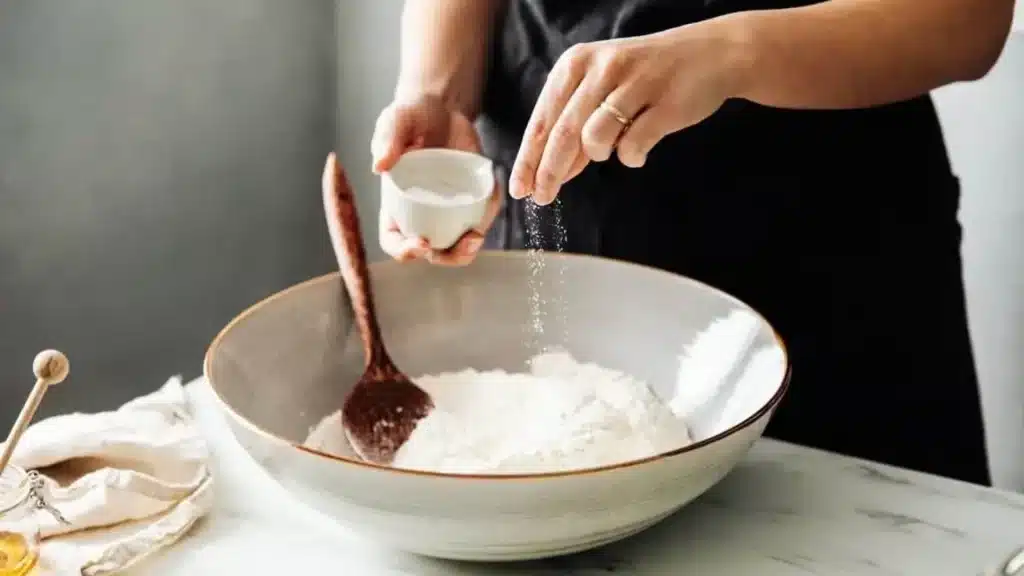
What Does Salt Do In Baking
What Does Salt Do In Baking? Realize The Magic Of Salt In Baking Welcome to the delightful universe of baking! Have you at any point

Welcome to the delightful universe of baking! Have you at any point considered how a basic fixing like salt can change your baked appearances into flavor-pressed delights? A great many people figure it doesn’t actually do much for baked products. WRONG! Salt is vital in baking; it’s right up there with eggs, butter, and flour. Your cakes, bread, and cookies all benefit from the “special flavor” of salt. No other seasonings or baking ingredients can fill the emptiness in our taste buds left by a lack of salt; only salt can. This extensive blog on what does salt do in baking will explore the wonders of salt in baking and uncover the secret powers that make our baked products taste so yummy!
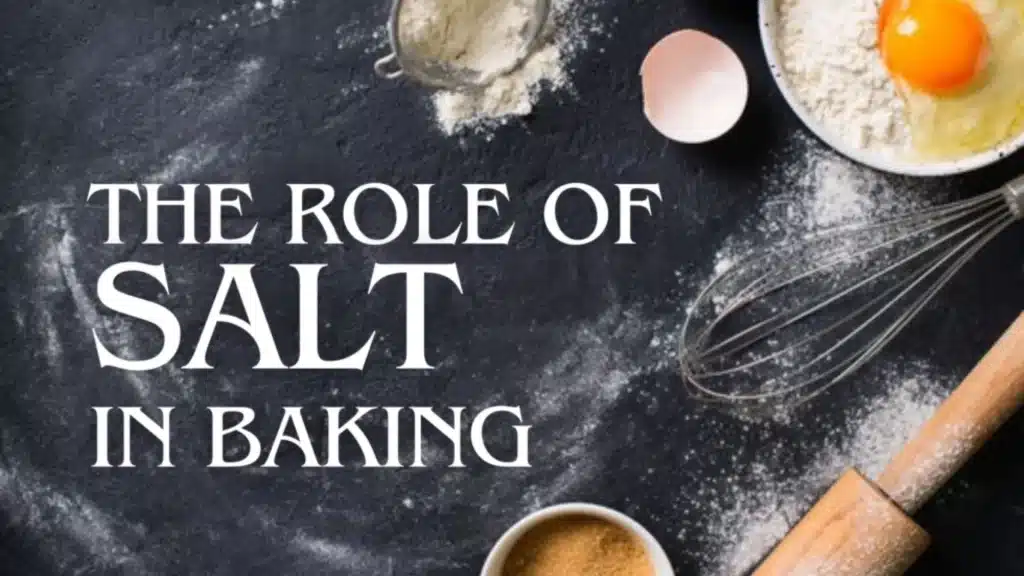
Most importantly, we should address specifically what salt does in baking. Salt has three principal capabilities: right off the bat, as an enhancer for different flavors (powerful enjoyableness); furthermore, as a flavor enhancer all alone (think salted caramel); and, finally, as a seasoning specialist that delays the development of microbes that cause weakening. When baking your sweets, if you do not add any salt at all, they will likely have a flavorless or overly sweet flavor because there won’t be enough contrast.
Salt is likewise added to a few baked products by a substance-raising specialist. When baking soda (sodium bicarbonate) and acid are joined, carbon dioxide is made, causing the hitter to increase during baking. That is the reason there is normally a little salt in many kinds of cake recipes as well as other raised-baked products like biscuits and scones since they all contain an acidic fixing like buttermilk, tough cream, yogurt, or lemon juice, which will make the baking easy.
For this post, we will take a look at a sweet treat, treats that require salt, and a more flavorful choice, bread, to act as an example of what salt can do in baking.
Pastry specialists likewise use salt while making a mixture for their bread. Second, it supports the gluten, which allows the mixture to hold carbon dioxide, which is responsible for aging. Last but not least, the bread’s flavor is knowingly different and improved by this small mineral.
Understanding what salt does in baking and why we use it is critical to creating any baked goods. But it’s just as important to know what happens if we don’t add salt to our baked goods.
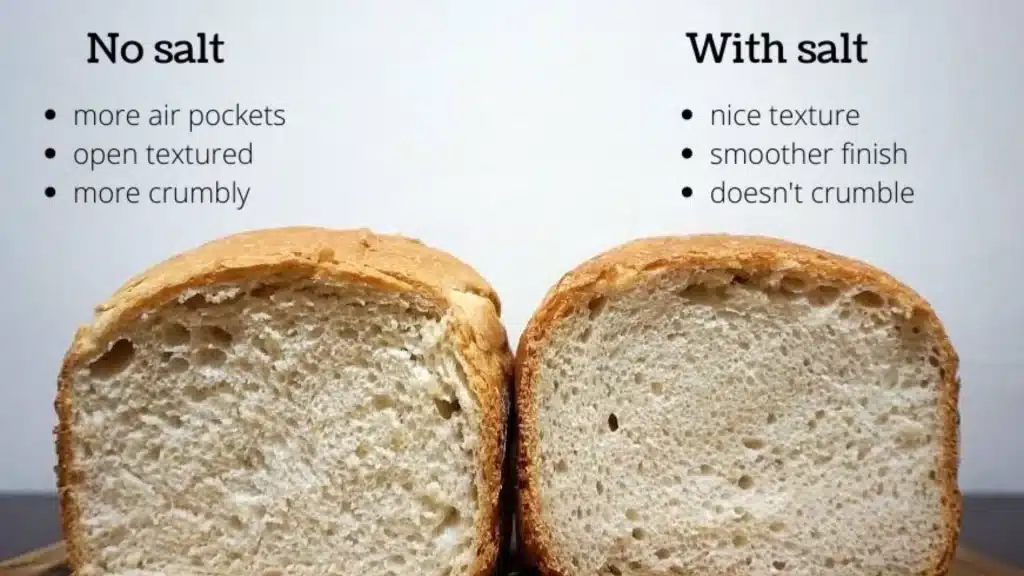
A few things might happen on the off chance that you don’t add salt to treats or bread:
Apparently, the main component is flavor. Your treats or bread would taste level. Without salt, drawing out the different kinds of ingredients will be difficult. Nobody needs to eat a dull treat or get an unfair bite of bread and simply taste the flour.
Dampness can be an issue without salt. You might have a dry treat or loaf of bread or end up with a wet accident in the event that you live in a damp climate. Salt likewise repels dampness and holds your mixture back from turning out to be extremely absorbed. It is one of the most difficult workouts.
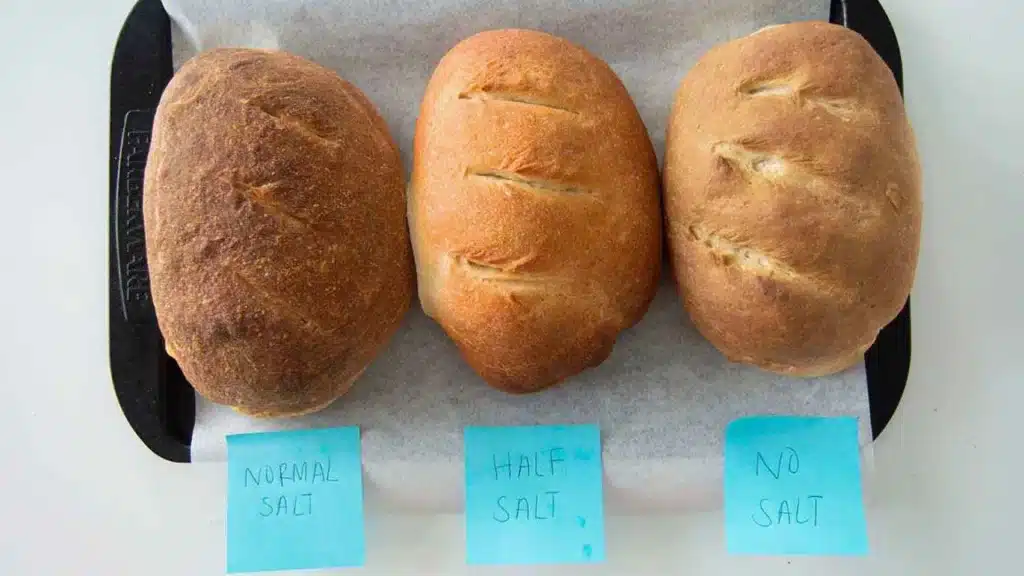
As referenced above, salt plays many roles in baking. What salt does in baking is wonderful. In the first place, salt adds to and enhances the flavor of baked goods. Second, it controls the development of yeast in dough. Third, it strengthens the gluten structure.
The following is the science behind the use of salt in baking. Read on to understand how salt functions.
The natural flavor enhancer is salt. It isn’t a basic flavoring; it’s a flavor enhancer! When added to baked products, salt draws out the regular flavors, making each eat an explosion of deliciousness. It adjusts the enjoyableness, enhances the richness, and adds insight to the general taste. In this way, remember to sprinkle a spot of salt to take your treats to a higher level!
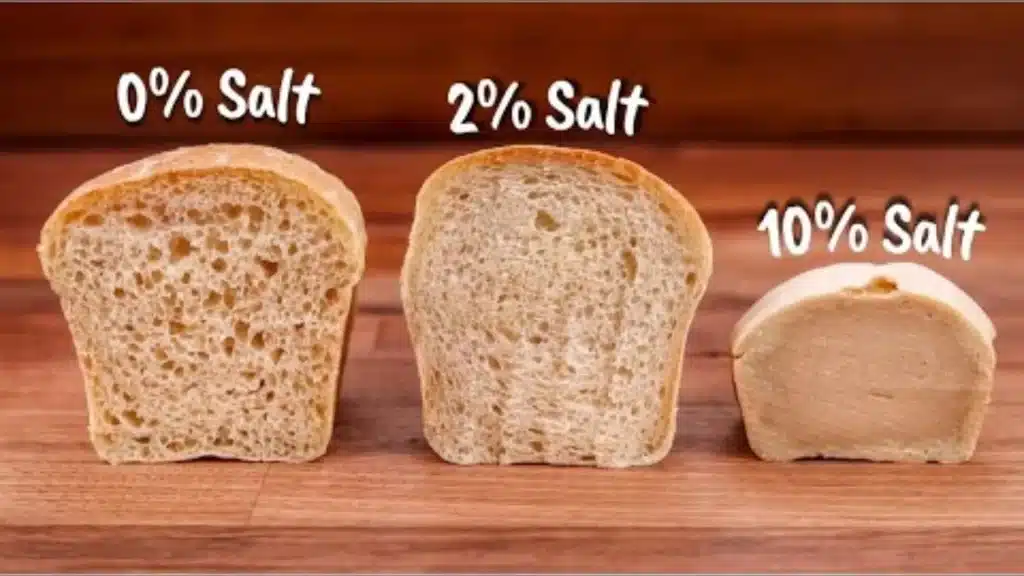
Yeast functions as a rising high-quality during growth, which is an important part of making bread. On the off chance that you love baking bread, salt is your clear-cut advantage. It regulates the yeast’s activity, preventing it from getting out of control and ruining the dough. Salt controls the growth interaction, guaranteeing an even rise and giving your portions that ideal surface and flavor.
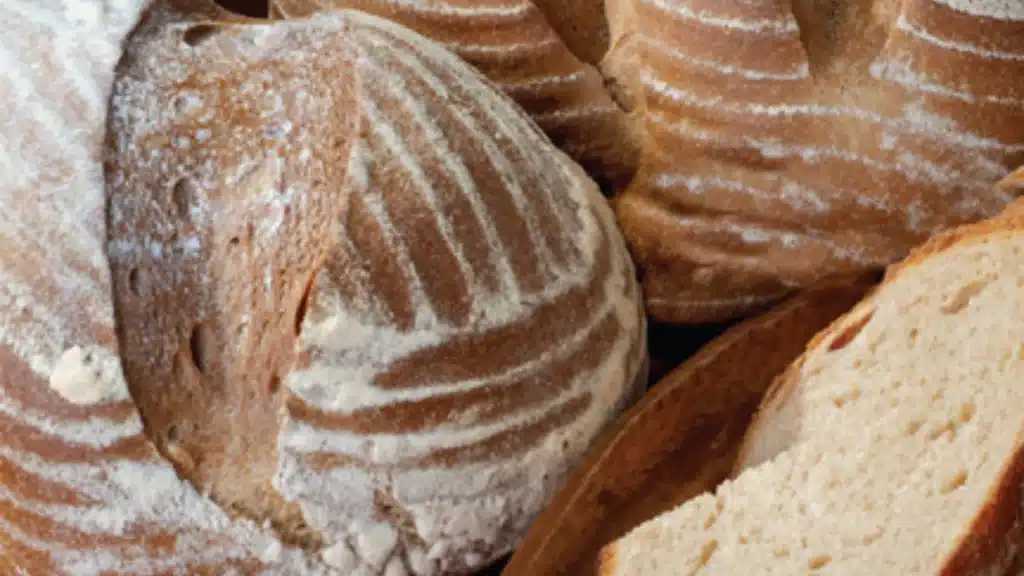
Gluten, the protein that gives dough its elasticity, needs a little help to do its best. Enter salt! Salt strengthens the gluten structure, giving your baked products that beneficial chewiness and design. Salt is a crucial component in achieving the ideal texture in everything from loving pastries to downy, soft bread.
There are various types of salt out there. A few recipes will have the kind of salt shown, while others don’t. So it tends to be tricky, particularly in light of the fact that they are not any different either way. However, here is a speedy breakdown of the various kinds of salts you can use in your baking activities.

This is otherwise called iodized table salt. This salt is made by sending water into salt mines. Then, at that point, the water dissolves, and the salt stones are uncontrolled. Iodine was added in the 1920’s to help with stopping a lack of iodine. Most supermarket table salts contain iodine.

Kosher salt, on the other hand, is iodine-free. Fit salt has bigger granules than table salt. Kosher salt is called kosher on the grounds that the bigger granules are great for charming the dampness out of meat during fit-making process not all fit salts are made equivalent, in any case. Morton Kosher salt would be an equivalent, 1:1 replacement for table salt. On the off chance that you are using valuable stone gem salt, you would need to double the amount of table salt required in a recipe.

I know to use sea ocean salt in the wholeness of my baking. I favor the kosher salt taste, and it degenerates into great recipes that are obviously superior to using salt. This salt comes from degenerate ocean water. There are various varieties of ocean salt that you could see on the shelves: Celtic, Himalayan pink, and my favorite, Fleur de Sel (more on this below). This is better in granule size than kosher salt, so you can use sea salt in many recipes that call for table salt. This fine salt will, in any case, degenerate in baking and filter very well.

This excessive French sea salt, read as “blossom of salt,” is a salt I save for sprinkling on toward the end of a treat. Perhaps on top of a chocolate chip treat or in salted caramel paste. It’s more costly than different salts, so I use it carefully. I purchased mine at Dignitary and Deluca in DC an extended get-away a long time back, yet you can likewise get it on Amazon.
Consider factors like grain size, saltiness level, and any special requirements of your recipe when selecting baking salt. Try different things with various sorts of salt to path down the ideal complement for your signs.

Salt is an important fixing in baking cakes and it fills various needs. As a matter of some importance, salt upgrades the kind of cake by adjusting the enjoyableness of the hitter. It additionally supports the hitter by helping with creating gluten, which gives the cake its construction and strength. This is especially important for cakes that require a great deal of mixing, for example, pound cakes.
All things considered, it’s significant not to overdo it with the salt. Using an excess can overcome the loveliness of the cake and give it a poor taste. A decent guideline is to substitute 1/4 to 1/2 teaspoons of salt for some flour in your cake recipes.
Epsom salt can be used as a regular fertilizer for plants. The magnesium and sulfur in Epsom salt help strong plant growth, subsequent in greener leaves and solider stems.
In conclusion, salt is a critical ingredient in baking. From upgrading flavors to controlling yeast movement and further developing surfaces, this ordinary fixing adds insight and balance to your baked products. By picking out what does salt do in baking and involving them in the right estimations, you can achieve excellent outcomes in your recipes. So, the next time you try your hand at baking; don’t forget to add some salt. The secretive fixing brings out the best in your prepared treats. Cheerful baking and partake in the delicious outcomes!
Salt takes treats from blew to yum. The salt draws out the loveliness of treats and balances flavors. Salt likewise draws in dampness, keeping treats from getting flat.
While baking a cake, salt draws out the niceness of the cake and balances flavors. Very much like with treats, salt additionally draws in moisture, keeping cakes from getting flat.
Assuming you just have iodized salt available, you can use it. Certain individuals say they notice a difference in flavor, while others say that is a mass of poop. Sea salt, or Kosher, is liked by attractive much every pleasure-loving expert.

What Does Salt Do In Baking? Realize The Magic Of Salt In Baking Welcome to the delightful universe of baking! Have you at any point

Dead Sea Salt Vs Epsom Salt, Which Bath Salt Is Right Choice For You? In the world of bath salts, two popular options take the
WhatsApp us